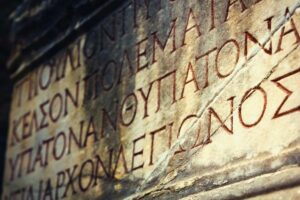ATHENS – A year after a head-on train collision killed 57 people, an investigation into the causes has lagged and seen relatives of victims complaining about evidence being overlooked and media reports of a cover-up.
The accident occurred Feb. 28, 2023, in Tempe late at night when a cargo train and passenger train collided just outside a tunnel, many of the victims were incinerated by the fire amid suspicion of undeclared chemicals on board.
Supreme Court Prosecutor Georgia Adeilini issued an order to the prosecutor’s office in the appeals court of Larissa, in central Greece, which oversees the investigations, to comprehensively clarify “every claim and every allegation” as the probe drags on with no major prosecutions.
But despite her order and complaints from relatives that the secret investigation is dragging, she said, “The superhuman efforts over the past year of the prosecutorial and investigative authorities for a thorough investigation as quickly as possible of the above crime, sparing no time and effort, are unquestionable.”
“Nevertheless,” she added, “protests and complaints from relatives of the victims persist regarding unanswered questions, pieces of evidence that were not properly evaluated, investigative actions that were overlooked, and even accusations of judicial cover-ups, which continue to circulate both domestically and internationally, fueled by certain media outlets.”
“Therefore, you must ensure every claim and allegation made by the victims’ relatives or the victims themselves and their legal representatives is investigated and addressed, following an assessment, according to your discretion,” the Supreme Court prosecutor said.
“(This will ensure that) the conclusion of the investigation leaves no doubt that the prosecutorial and investigative authorities have examined every aspect of the case, fulfilling their duty entirely,” she said.
In a report, Agence France-Presse recalled how the trains were running on the same track for 19 minutes and a stationmaster new to the job didn’t see what was happening – although automated and electronic safeguards weren’t in place, their installation was delayed for years and no accounting of where the money went.
The official inquiry into the crash has also been proceeding slowly and investigators were not due to finish questioning until March 8.
Maria Karystianou, a pediatrician whose 19-year-old daughter Marthi was killed in the collision, called the crash a “crime.” Officials “knew there were deadly risks,” she told AFP. “This can’t be considered a case of negligence.”
Most of the victims were students heading back from Athens after the end of the carnival period to universities in Thessaloniki and survivors said people were trapped in smashed carriages as the train flipped over.
Safety improvements have begun but are proceeding slowly and in sections. Several failings that led to this disaster remain uncorrected, the report said, despite Prime Minister Kyriakos Mitsotakis’ promise to get answers fast.
For decades, Greece’s 2,552-kilometer (1,585-mile) rail network has been plagued by mismanagement, poor maintenance, and obsolete equipment, the report said and more than 700,000 people have signed a petition launched by Karystianou, demanding reforms to make it easier to prosecute ministers and lawmakers accused of crimes.
The tragedy prompted three days of national mourning and mass protests in several cities, with demonstrators hurling rocks at the offices of the railway’s Italian-owned operating company, Hellenic Train.












